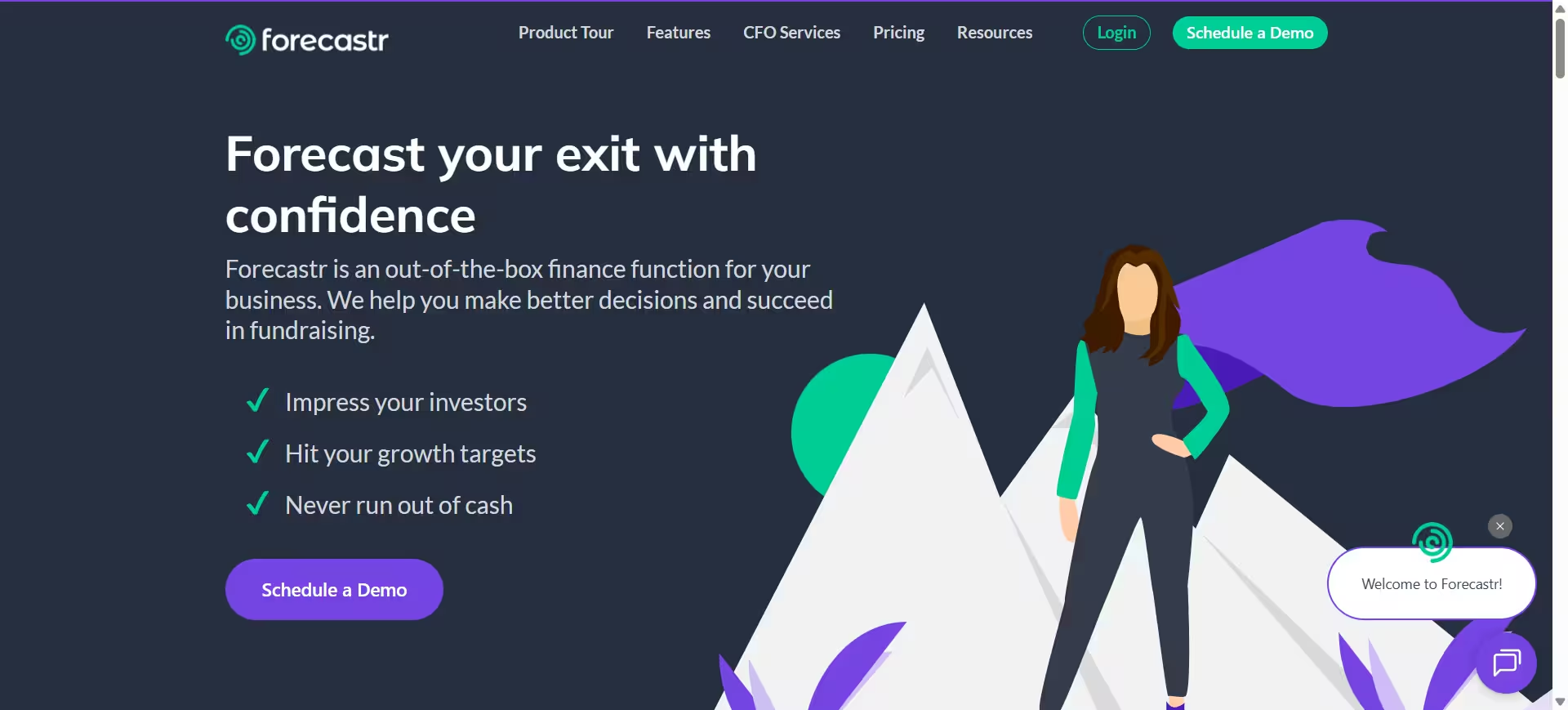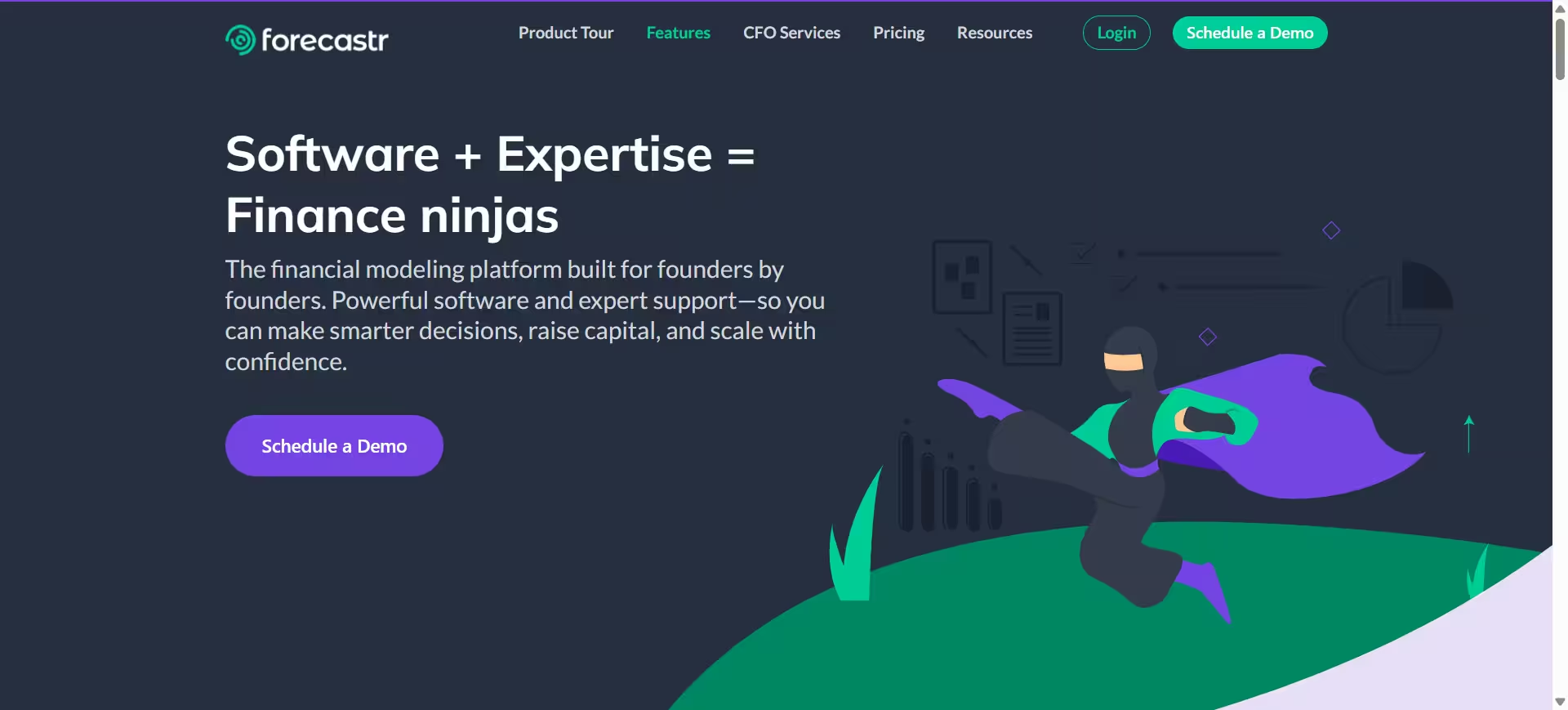Introduction
Forecastr is a financial planning and analysis platform designed to give fast-growing companies and startups a complete finance function—without having to build it from scratch. The platform combines a powerful forecasting engine with expert support from fractional CFOs and finance analysts, enabling teams to model revenue, expenses, hiring, and cash flow; monitor key business metrics; and prepare for fundraising or growth with clarity and confidence.
At its core, Forecastr helps businesses answer critical questions: How much runway do we have? What happens if we scale faster or slower? Where are our cost drivers and when should we hire? The software offers pre-built templates for various business models (SaaS, marketplace, e-commerce, services), a drag-and-drop dashboard builder to visualise data, scenario modelling so you can run “best case” and “worst case” versions, and integrations with accounting systems so that actuals are kept up to date. It’s not just a tool—it’s also a team. The company provides CFO-level guidance, model review, and investor-grade documentation alongside the platform.
For founders, finance leads or growth teams who want more than spreadsheets and manual forecasts, Forecastr presents a unified solution: automate data import, build a flexible model, track real metrics, get expert support, and present your numbers with confidence to investors, boards and internal stakeholders. It shifts financial planning from periodic guesswork into continuous, dynamic strategy.
🌟 Why You Should Choose
Investor-Ready Financial Models — Build professional models with templates tailored to your business type, allowing you to pitch with confidence and show your numbers clearly.
Scenario & Driver-Based Planning — Explore multiple “what-if” scenarios, model hiring and growth drivers, and understand how changes affect cash flow, runway and KPIs.
Dashboard & Reporting Customisation — Use drag-and-drop dashboards to visualise the metrics that matter, enabling leadership to quickly identify issues or opportunities.
Accounting Integration & Actuals Sync — Link your existing accounting data so your model reflects real performance, enabling variance tracking and more accurate forecasting.
Expert Support + Finance Team-Level Services — Access fractional CFOs and financial modelling experts to guide your strategy, refine your model, and ensure your forecasting process is grounded and actionable.
⚙️ Additional Highlights
Pre-built templates cover SaaS, marketplace, e-commerce, transactional and services business models.
Real-time cash runway and burn-rate tracking, helping you avoid surprises and keep the lights on.
Multi-user collaboration and shared access links, enabling stakeholders (investors, board members, team leads) to view appropriate data.
Extensive resources (blog, tutorials, model templates) designed to raise financial literacy and support early-stage businesses.
Designed for scaling companies: while safe for smaller teams, its value increases as your growth trajectory becomes more complex and you need strategic financial insights.
Launch Date & Founder Name
Founded in 2020.
Founders include Logan Burchett and Steven Plappert.
Pros And Cons
Pros:
- Elevates financial planning from spreadsheets to a scalable, professional process.
- Brings together software + expert support—a strong win for teams that lack a full finance function.
- Enables data-driven decisions, better runway management and clearer investor communications.
- Covers a wide range of business types with model templates and scenario planning.
- Real-time syncing and dashboards give current, actionable insights rather than retrospective reports.
Cons:
- As a more advanced and strategy-oriented tool, the cost may be higher than simpler forecast spreadsheets—so very early stage of one-person company may find it over-powered.
- The complexity of building and maintaining a detailed model still requires time and discipline—it’s not entirely plug-and-play like a basic spreadsheet.
- Some business models or multi-entity structures may require additional customisation beyond the standard templates.
- For companies outside of the typical growth startup profile (e.g., traditional small business with stable revenues), the focus on scaling metrics may be less relevant.














